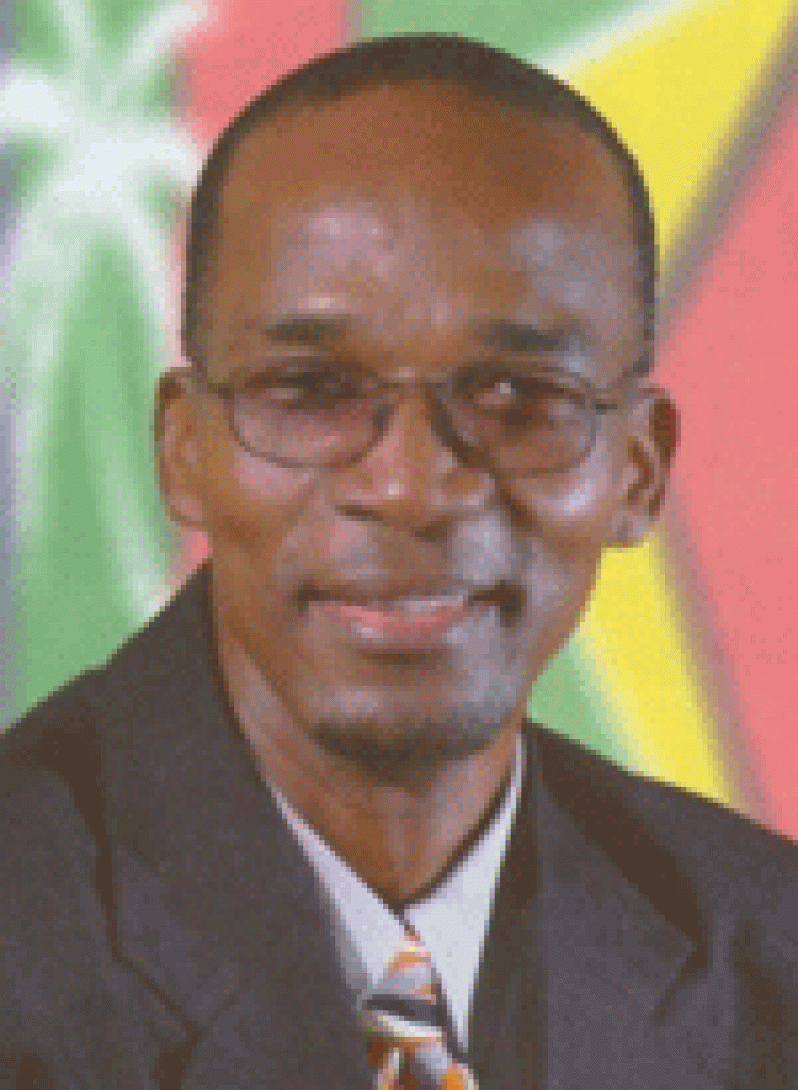THE Caribbean Council for the Blind and the Foundation for Eye Care in the Caribbean, in keeping with the Vision 20/20 right to sight, started a workshop at the Pegasus Hotel, in Kingston, Georgetown, yesterday, to prepare a national health strategy framework for Guyana.  The project was jointly launched in 1999 by the World Health Organisation (WHO) and the International Agency for the Prevention of Blindness (IAPB) and, in relation to it, the Government of Guyana reiterated its dedication towards the impaired society and endorsed the initiative which is being undertaken from a global standpoint.
The project was jointly launched in 1999 by the World Health Organisation (WHO) and the International Agency for the Prevention of Blindness (IAPB) and, in relation to it, the Government of Guyana reiterated its dedication towards the impaired society and endorsed the initiative which is being undertaken from a global standpoint.
Because it is evident that blindness poses a serious public health, social and economic problem for Guyana and the world at large, the growing issue is on the front burner and various countries are working through partnership to eliminate it and deal with the challenges that face the impaired population.
Parliamentary Secretary in the Ministry of Health, Mr. Joseph Hamilton, addressing the opening yesterday, said that over the years, the Guyana Government has and continues to engage in constant talks with different countries about eye care.
He alluded to the many collaborative efforts between Guyana and Cuba and said the project was one such example of the relations that were built.
“The Government of Guyana has indicated that it is committed to the Vision 20/20…we know of the collaboration between Guyana and Cuba …Guyana also in collaboration with Cuba established an ophthalmology hospital at Port Mourant staffed by Cuban doctors,” Hamilton pointed out.
He said Vision 20/20, basically, speaks about the world’s plan for the future in curbing issues in this regard.
Hamilton said, if the focus was just on the prevention of blindness, it would mean that they are missing the mark.
“Persons are born blind and some are already blind unfortunately. So your workshop must cater for those, too,” he said.
REAL CHALLENGE
Hamilton said the real challenge is capturing all the issues in the framework and finding ways, through serious and long deliberations, to deal better and effectively with those affected in this regard.
“The two main strategies that must be developed are the prevention of blindness and secondly how do we create access to hassle free health care for the persons who are affected,” he suggested.
Hamilton said it is necessary to make available the required facilities to assist the blind and, in this regard, he challenged the Private Sector Commission (PSC) to come on board and be supportive of the impaired communities.
In that way, jobs will be provided for persons who are blind, as he does not believe there is enough enthusiasm and support in Guyana from the various organisations to deal with this problem.
As such, Hamilton appealed to all Guyanese to make an input in establishing Vision 20/20 successfully in the country.
“There is not an enthusiasm to deal with this matter…the system took one and a half years to launch its disability commission after the act was passed in parliament,” he observed.
Hamilton requested the Vision 20/20 Committee in Guyana to engage the Disability Commission to seek a framework with collaboration, so that this country can capture the real issues relating to eye care.
Meanwhile, Mr. Adrianus Ton Vhugman, Senior Advisor, Sustainable Development and Environmental Health (PAHO/WHO), said, globally, up to 80 percent of blindness is avoidable. It either results from conditions that could have been prevented or conditions that may be successfully treated to restore sight.
In this regard, he lauded the undertaking, noting that ocular health interventions are achievable, measurable and cost effective, in order to prevent cases of blindness and visual disability.
FULL RANGE
According to him, a full range of services must be offered to increase access to eye health for rural residents and indigenous groups, women and segments of the population that are economically and socially marginalised.
He highlighted that PAHO/WHO has a longstanding commitment to the prevention of blindness programme and compiled a list of best practices, including developing national epidemiologic assessments that prove to be a very strong advocacy tool to secure the necessary political support; supporting countries in the development of national strategic frameworks, plans and programmes, giving priority to measurable, cost effective and sustainable interventions and developing international partnerships and alliances with Sight Savers International.
Ton Vhugman informed that the Caribbean Council for the Blind, IAPB, Vision 20/20 and academic and research institutions share the same objective, thereby establishing a collective knowledge base and improving the use of resources and promoting, at the national level, partnerships among governments, donors, civil society and the private and non-profit sectors.
He said PAHO/WHO remains committed to working with its counterparts and other stakeholders and will continue to provide technical cooperation for the prevention of blindness and the development of the different components of the Vision 20/20 Plan.
In addition to the national workshops, the PAHO Prevention of Blindness Regional Programme has been providing to Guyana, through the years, several country visits.
“We wish you fruitful discussions among the stakeholders present here today and, specifically, success in achieving the objectives of this National Eye Care Strategic Framework workshop,” he said.
In the year 2000, several organisations, among them PAHO, the European Union (EU), the IAPB and WHO collaborated and Vision 20/20 was inaugurated in Guyana.



.jpg)









